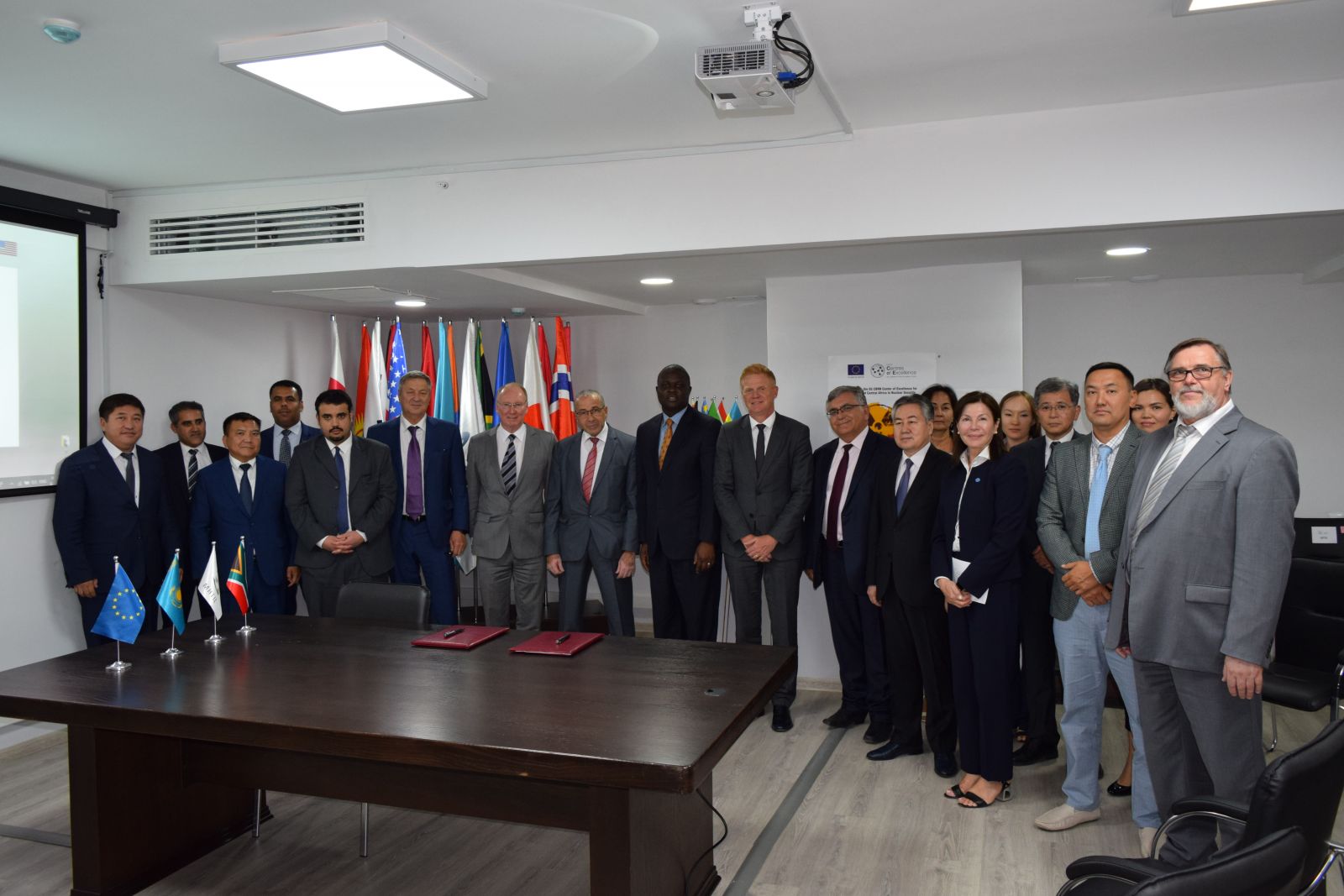ISTC and AFCONE Conclude a Memorandum of Understanding for Cooperation in the field of Science, Technology Research and Capacity Building
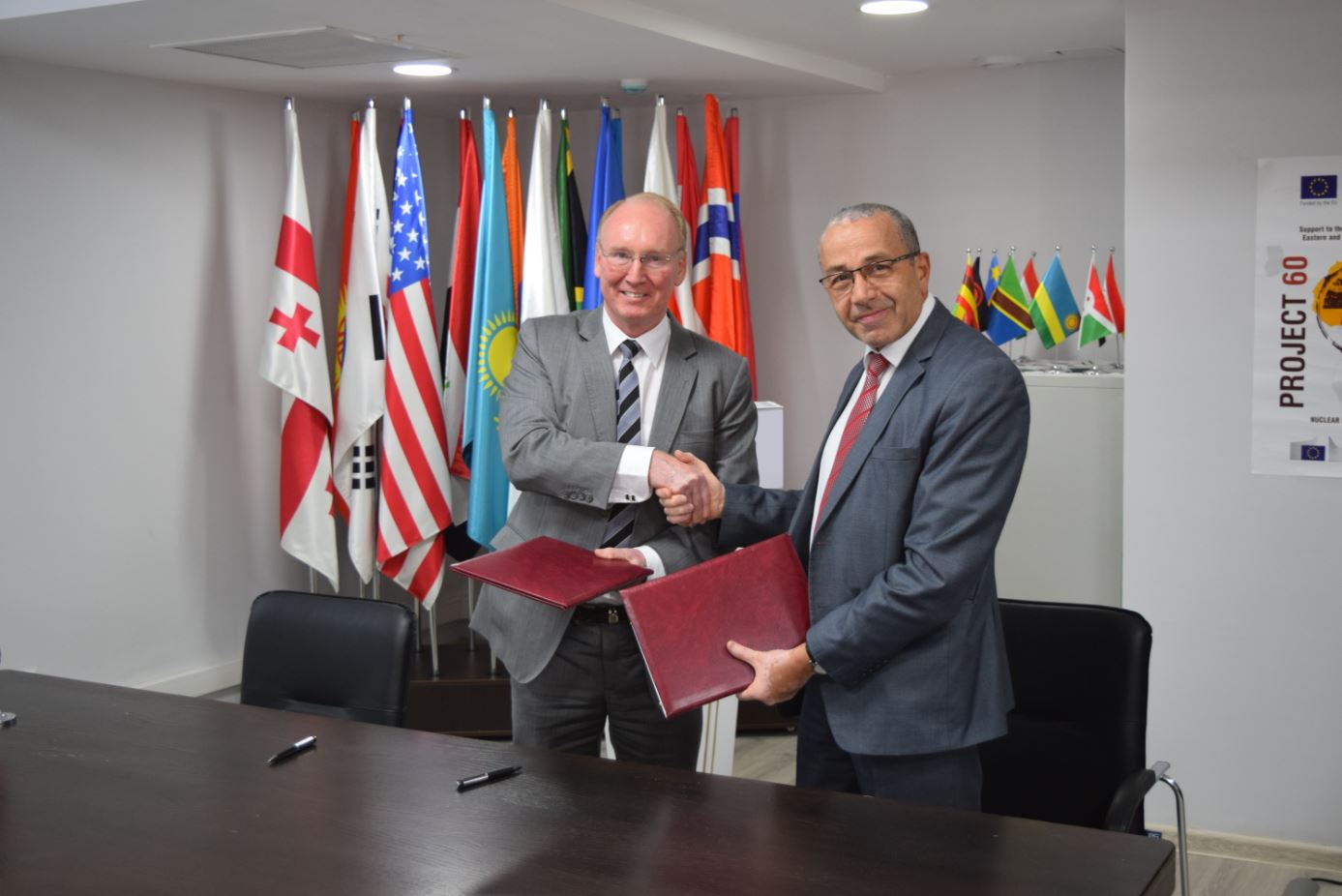
On 27 August 2019 ISTC Executive Director David Cleave and AFCONE Executive Secretary Messaoud Baaliouamer signed in the ISTC Office in Nur-Sultan a Memorandum of cooperation in strengthening nuclear safety, security and safeguards in African countries, Parties to the Pelindaba Treaty on non-proliferation and the establishment of a nuclear weapons free zone on the African continent.
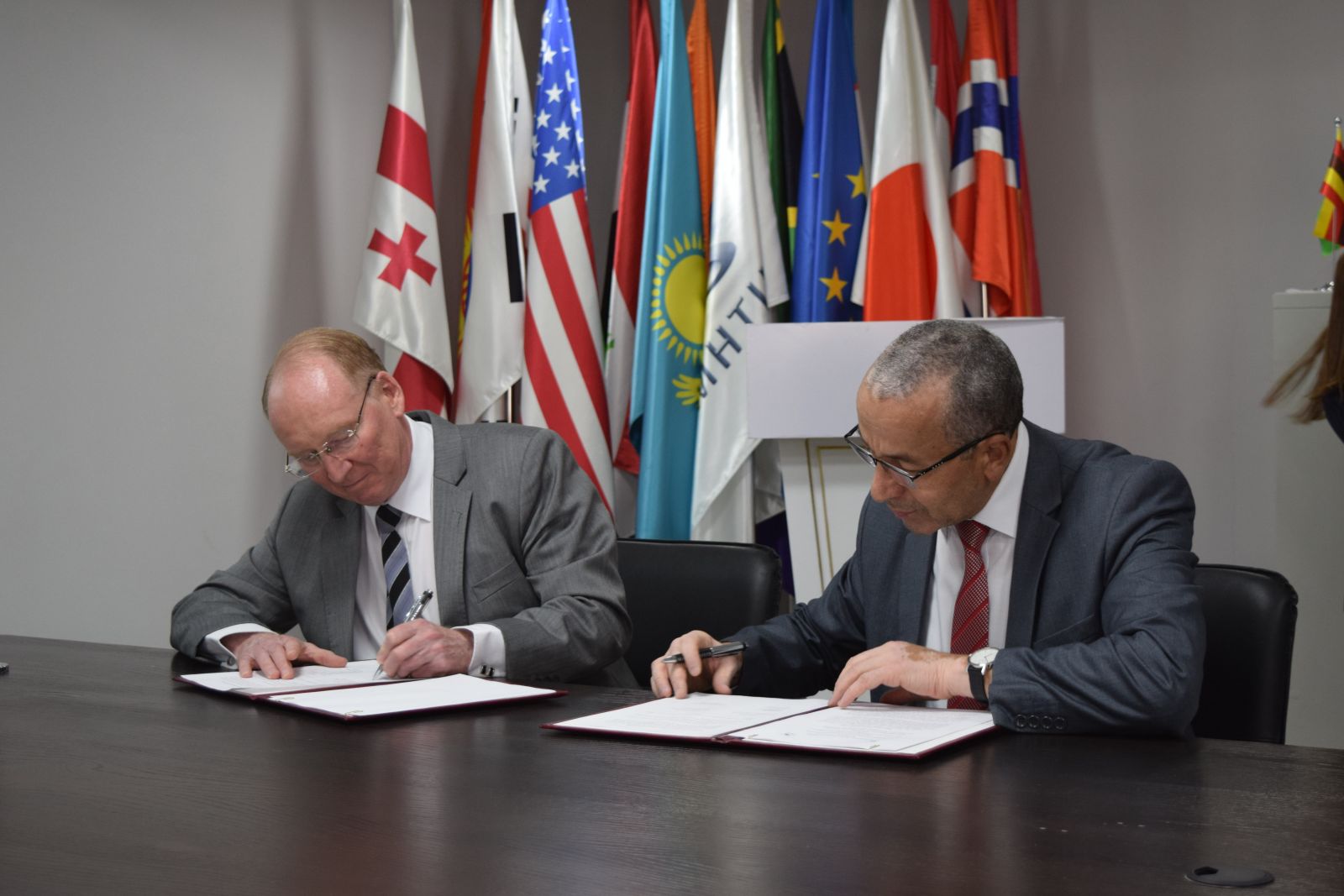
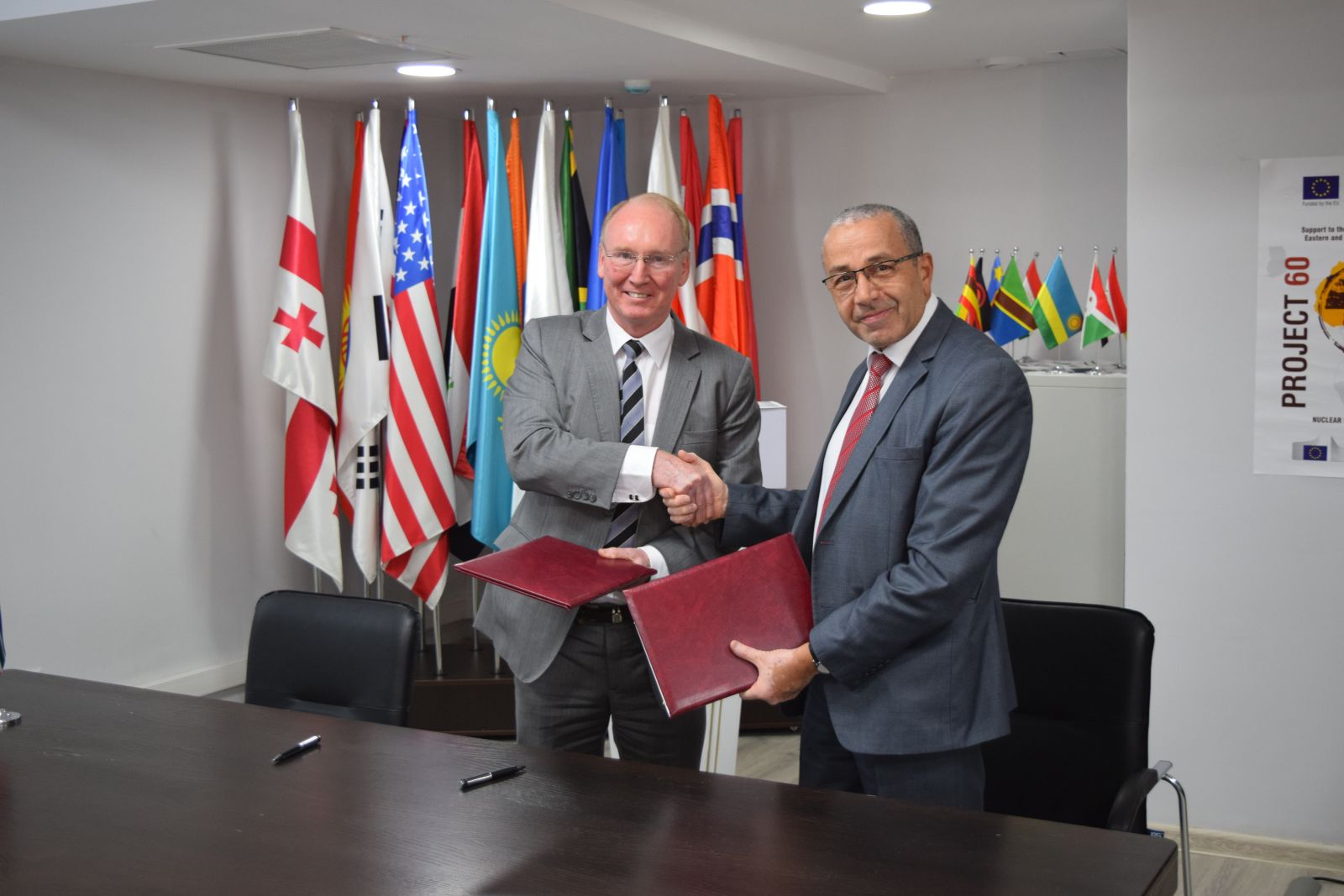
Through the Memorandum the two organizations, ISTC and AFCONE, set up a framework for interaction in areas of common interests especially in scientific, technological and innovation-based research and capacity building programs. They will extend and strengthen the conduct of cooperative activities, and will contribute to enhanced technological development of medical sciences, new materials and environmental protection, etc. Other areas of collaboration include safe transportation of uranium concentrate and radioactive sources, radioactive and nuclear risk reduction and emergency response and preparedness in Southern Africa. Also, the Memorandum will help conduct surveys of problematic areas faced by individual African countries in compliance with their international obligations, and, when appropriate, will facilitate provision of external assistance to these ends.
The two parties will aim at facilitating the spread of knowledge and nuclear safety and nuclear security culture amongst interested segments of the researchers, academia, youth and professionals, as well as communities and stakeholders in areas of mining, milling, production, storage, disposal and transportation of radioactive material. These joint efforts grow in importance when perceived against the background of the decision of twelve African States to pursue nuclear power generation and the growing non-power applications in agriculture, medicine, food security, and water supply.
The event took place on the eve of the International Conference “Fostering cooperation and enhancing consultation mechanisms among the existing nuclear-weapon-free zones”, convened on 28 and 29 August in Nur-Sultan. The idea of intra-regional exchange of experience among the NWFZs was formulated by the First President of Kazakhstan Nursultan Nazarbayev in 2016, in his Manifesto: The World. The 21st century. The inter-regional cooperation is a major component of the persistent and tireless efforts of Kazakhstan in the field of non-proliferation and nuclear disarmament. The Kazakhstani Government, being a committed founding member of ISTC, today hosts its Main Office and actively participates in its Governing Board (GB).
AFCONE and ISTC established relations in April 2019 when Dr Messaoud Baaliouamer took part in the Second Joint Meeting of the SADC Nuclear Regulators Network and the 5th Steering Committee Meeting of Project MC.01/15B Support to Southern African States in Nuclear Safety and Safeguards in Arusha, Tanzania. This EU-funded project is implemented by ISTC.
On 25 June 2019, during a working visit to South Africa the ISTC Management, comprising the Chairman of ISTC GB Ronald Lehman, the EU Member of the Board Eddie Maier, and Executive Director David Cleave became the first foreign delegation to officially visit the new Pretoria Headquarters of the African Commission on Nuclear Energy (AFCONE). They were received with hospitality by Executive Secretary Messaoud Baaliouamer, and Adam Senoussi, Vice Chair, as well as members of the Secretariat. At that meeting the leaders of the two organizations decided to structure their bilateral relationship through a Memorandum of Understanding.
Director Dastan Yeleukenov, Head of the MFA International Security Department, attended the signing ceremony, as well as Ambassadors and diplomats from the ISTC States Parties, potential candidate countries and African and Arab states, based in Nur-Sutan. Among the distinguished guests was one of the ISTC founders, former Minister of Energy Vladimir Shkolnik.
.jpg)
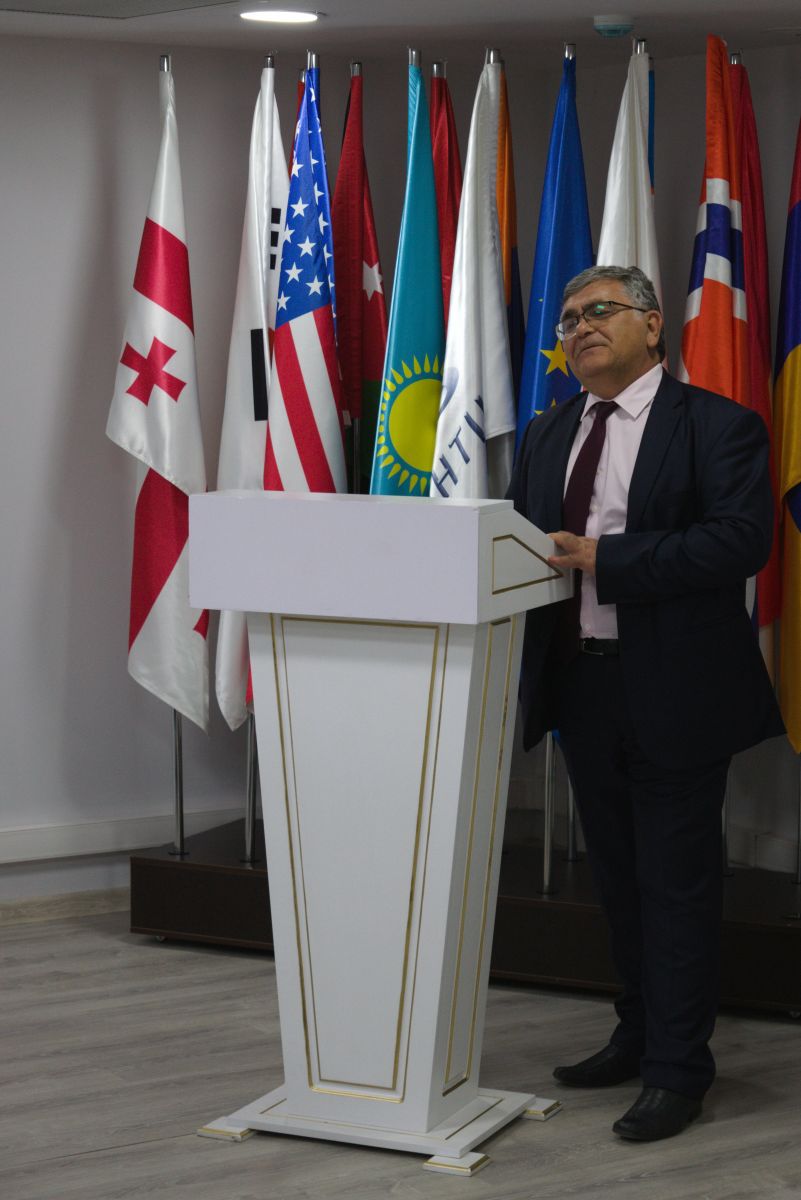
.jpg)
.jpg)
